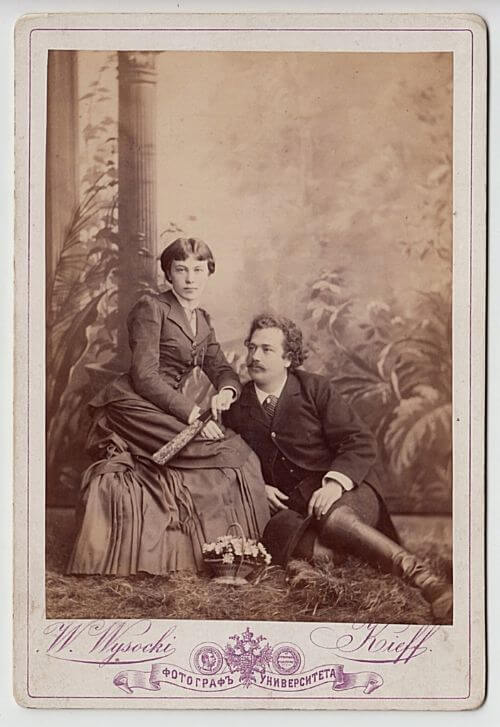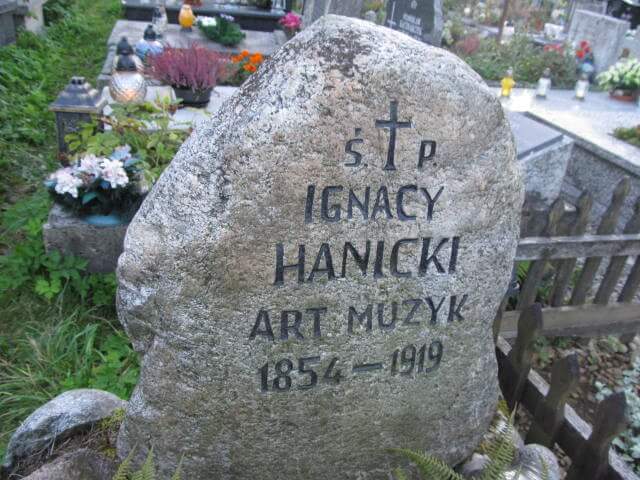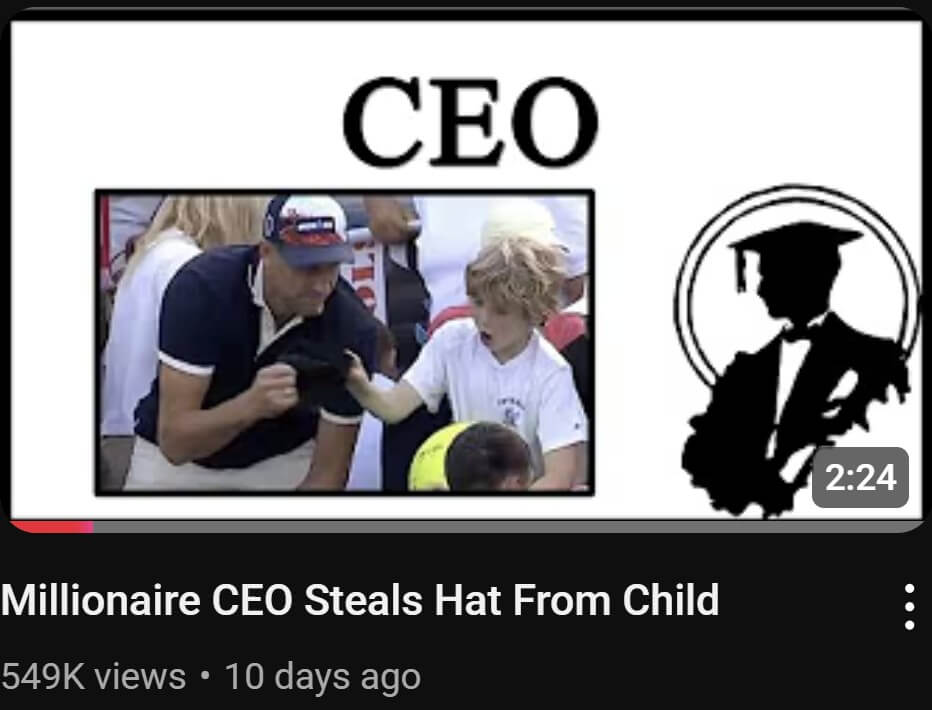The first dead man I'd ever seen
Sep 11, 2025 8:45 pm
The artist Marek Zulawski, translation & Polish-British culture
Hi,
Poland's been in the news this week due to the possibility of the Ukrainian war spilling over, so I thought I'd find something about Ukraine in my father's autobiography.
Below is the story of my father meeting his grandfather for the first time as a boy, tied together with an episode in the early 1970s during which he and his brother Julek searched for a location for a new family grave.
My grandmother Kazimiera was born in Chemerysy, just west of the city of Bar in central Ukraine. I assume her parents Zofia and Ignacy also spent much of their lives there in Podolia (I think the latter was born there), which was then controlled by the Russian empire. Being born in Ukraine but officially a Russian citizen of Polish heritage probably gave them some interesting thoughts on identity and nationality. I wonder what they'd think of the mess we're in today.
---
Why be buried in such desolation, in such neglect?
My great grandparents Zofia & Ignacy Hanicki, circa 1890, via Allegro
I'm back in Poland again. Julek and I are walking around, looking for a place to lay our bones. Seriously. We’re looking for a suitable cemetery. We’re both dressed neatly, but with a touch of careless elegance — just enough to signal that the matter isn’t urgent.
Back in Krzeptówki, Julek had said we ought to start thinking ahead. I wanted to find some argument to wriggle out of it — but I couldn’t. The family grave, after all, is a historical concept — sanctified by tradition. An urn of ashes on the piano doesn’t strike me as a serious solution, and scattering one’s ashes to the four winds seems altogether too romantic.
Besides, somewhere deep in my soul, I feel a certain unease when I think about crematoriums. For what will happen on Judgment Day? Is God truly almighty enough to resurrect a body from ashes scattered at some fork in the road? When there aren’t even any bones left to give Him an idea of the deceased’s dimensions? And what if a handful of ashes have gone astray — would I stand before my Creator like Cain with a mark on my forehead?
Yes, yes — a solidly walled grave, prudently located, seems much more appropriate to me.
So we drove from Krzeptówki to Zakopane. After all, our grandfather is buried in Zakopane's cemetery — my mother’s father, Ignacy.
After a long, very long, period of estrangement, he found Zakopane on the map, and one evening, when I was a small boy playing in the garden of the Łada villa, he appeared at the gate with his pointed grey beard, emaciated, leaning on a little cane — an elegant man.
Before entering, he stood there for a long time, just watching. I tried not to notice him, although his strangeness really intrigued me.
“So you must be Mareczek,” he finally said in a funny borderland accent. “Take me to your mother, to Kazia.”
He walked unhurriedly through our vast garden. The halny wind blew at the skirts of his great fox-fur coat. He seemed to belong to the Ukrainian steppes. It was in coats just like that that people shot at wolves from sleighs pulled by three horses down snow-covered roads.
It wasn't long before he died. He lay there white as wax — the first dead man I'd ever seen. He never did see his wife again, though they had long ceased to live together. When he came to us, my grandmother was “at war with General Berbecki”. It was 1920. But reconciling with her was not why he'd come.
Ignacy Hanicki — an excellent cellist, who even after the October Revolution still directed the conservatory in Kamianets-Podilskyi and had received some medal of merit from the Soviet government — had come to Zakopane to die with his eldest daughter, whom he had always loved. He had cancer. He was buried together with his brother Feliks and our so-called Aunt Mania, née Stempowska, who'd lived in the Tolin villa.
So, a family grave here? We looked around. The location wasn’t bad. But the cemetery itself lacked atmosphere — somehow bare and exposed. I didn’t like it there much. And besides, it turned out the Stempowski family had also laid claim to this site of eternal rest. So that idea didn't work out.
In Warsaw, Julek picked out a small cemetery in Mokotów. We arrived there one sunny afternoon. Tall trees cast long shadows, overgrown uneven paths of grass and buttercups ran off to nowhere. Yes. Quiet. But I wasn’t in the mood for humility.
Why be buried in such desolation, in such neglect? The fence was crooked and broken — stray dogs were undoubtedly urinating all over these graves. Graves of forgetfulness. On both sides there remained some hollows — traces of ditches or trenches. Mazovian sands stained with blood. The grass was sharp and sparse, like the stubble on a gardener’s chin... An empty field, a flat plain, a boy and girl walking across the field... the words from some poem got tangled in my mind...
Julek said nothing. He was pensive. Perhaps it was here on this cemetery that his platoon and their machine guns had been stationed in 1939...
High in the branches the blackbirds whistled: fiu-fiu, fiu-fiu... Fluttering their wings, hopping from bough to bough, and again fiu-fiu, fiu-fiu.
It all came to nothing.
Later in London, I was walking beside Ruth, behind John’s coffin. The vastness of Kensal Green Cemetery was hidden behind a high wall, invisible from the street, its din inaudible within. An enchanted park. Enchanted soft lawns, emerald green yielding underfoot. A variety of trees planted with care but contriving a romantic randomness. The ecumenical chapel pretending to be a Greek temple... Die Leute leben, I thought to myself, apropos of nothing. The mourners did not hold back their cheerful smiles or warm exchanges of greeting. In this garden-party atmosphere, the broken Ruth and her heavy mourning looked rather out of place. John’s sons, on the other hand, were in splendid form and looking sporty. They chatted loudly with friends. For a cemetery, I thought, this is an excellent place...
And as I left, I slipped into the cemetery office to inquire about the price...
Ignacy Hanicki's tombstone in Zakopane, via Grobonet
My father mentions 1920, the height of Poland's short wars with Ukraine and Russia, during which General Berbecki was in charge of Poland's forces (although it does seem Ignacy died in 1919, not 1920). Zofia Hanicka really was preoccupied with the wars back then - she had been a courier during WWI and been awarded the Cross of Independence with Swords.
---
Polish CEO steals hat from child, tells world not to complain
When a tennis star started giving out gifts to spectators at the end of a US Open match, a grown man snatched one of the hats out of the hands of a young boy.
Apparently Piotr Szczerek made a statement saying the boy just wasn't quick enough to hold onto it for himself, but soon regretted his words after the whole Internet started trolling him and his company Drogbruk.
Szczerek quickly issued a new statement saying that actually it was all 'a terrible mistake'. What a surprise!
Elsewhere, Poland has started sending out drones in retaliation... against mosquitoes.
---
That's all for this week. Many thanks for reading. If you want to support the newsletter, please forward it to a friend or donate here.
Adam
Adam Zulawski
TranslatingMarek.com / TranslatePolishMemoirs.com / Other stuff
👉 Help fund the translation of Studium do autoportretu via Paypal 👈
Sent this by someone else?




